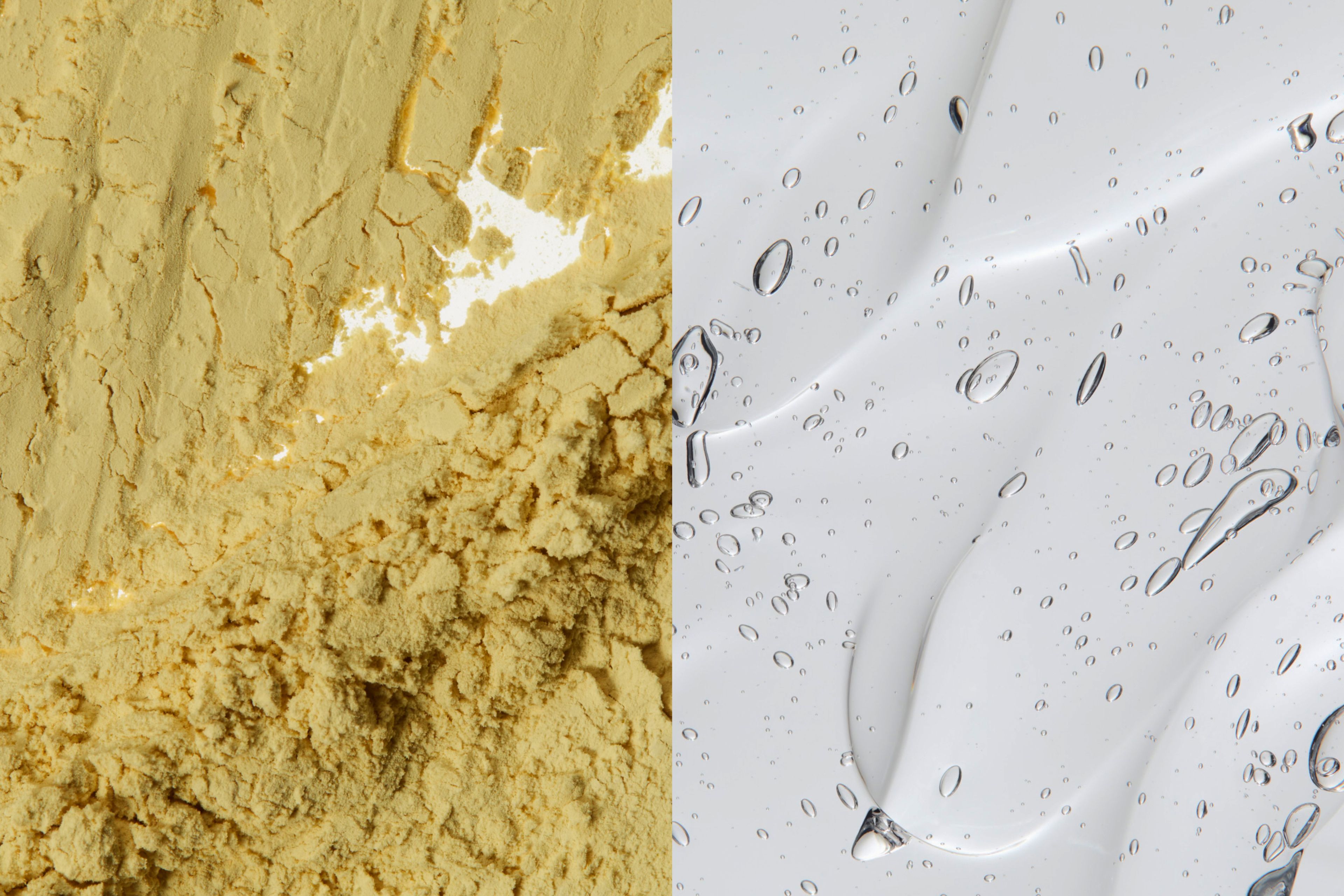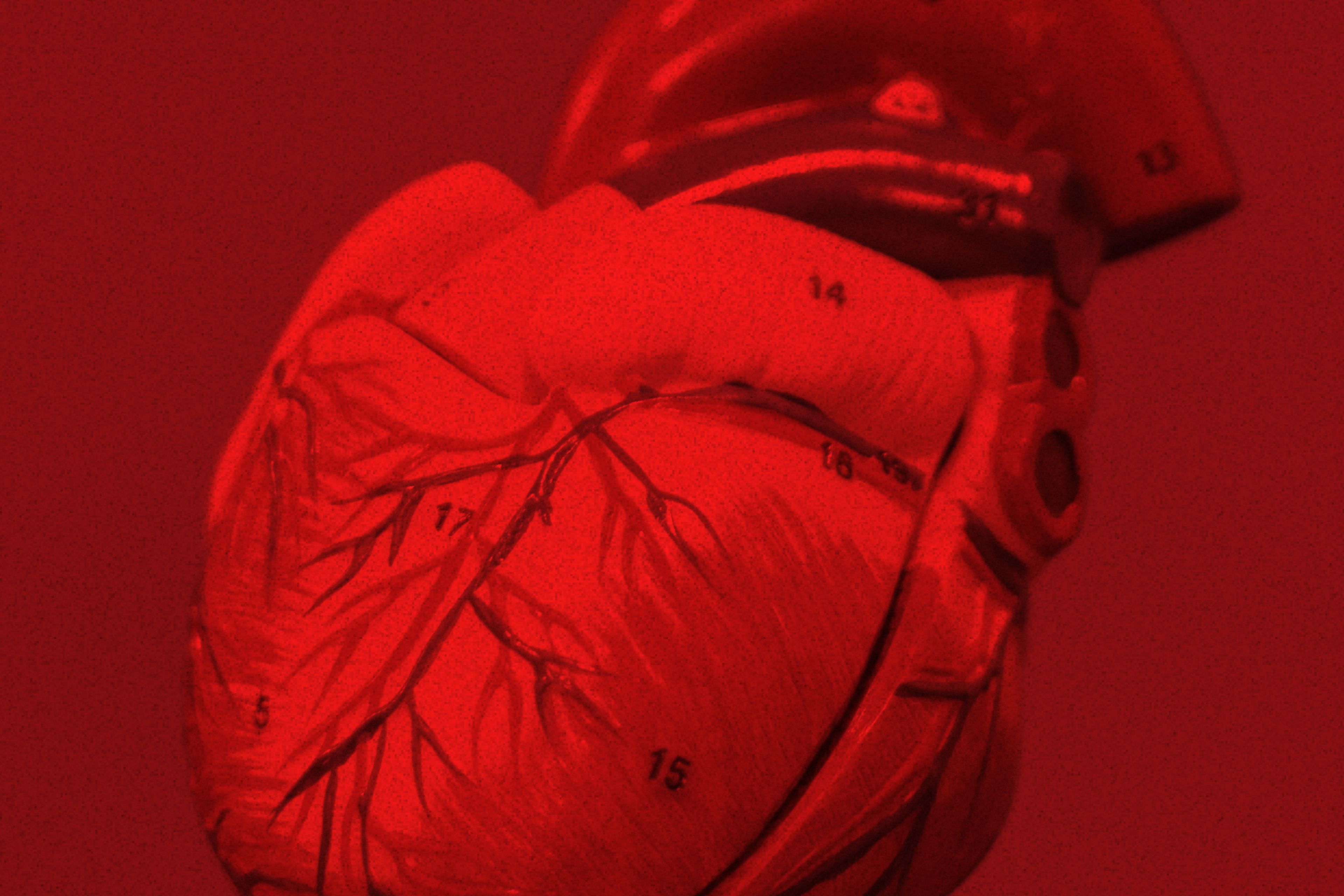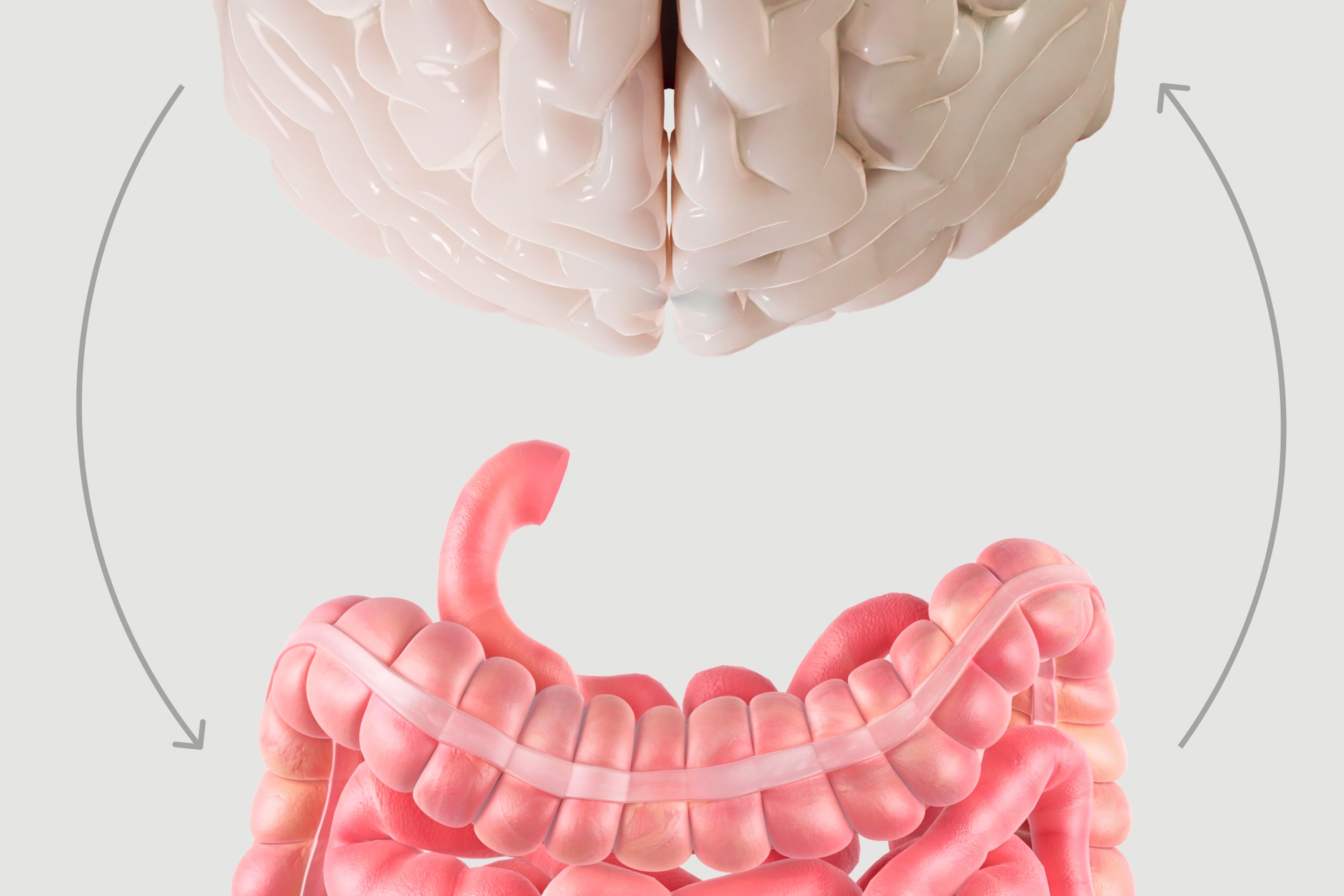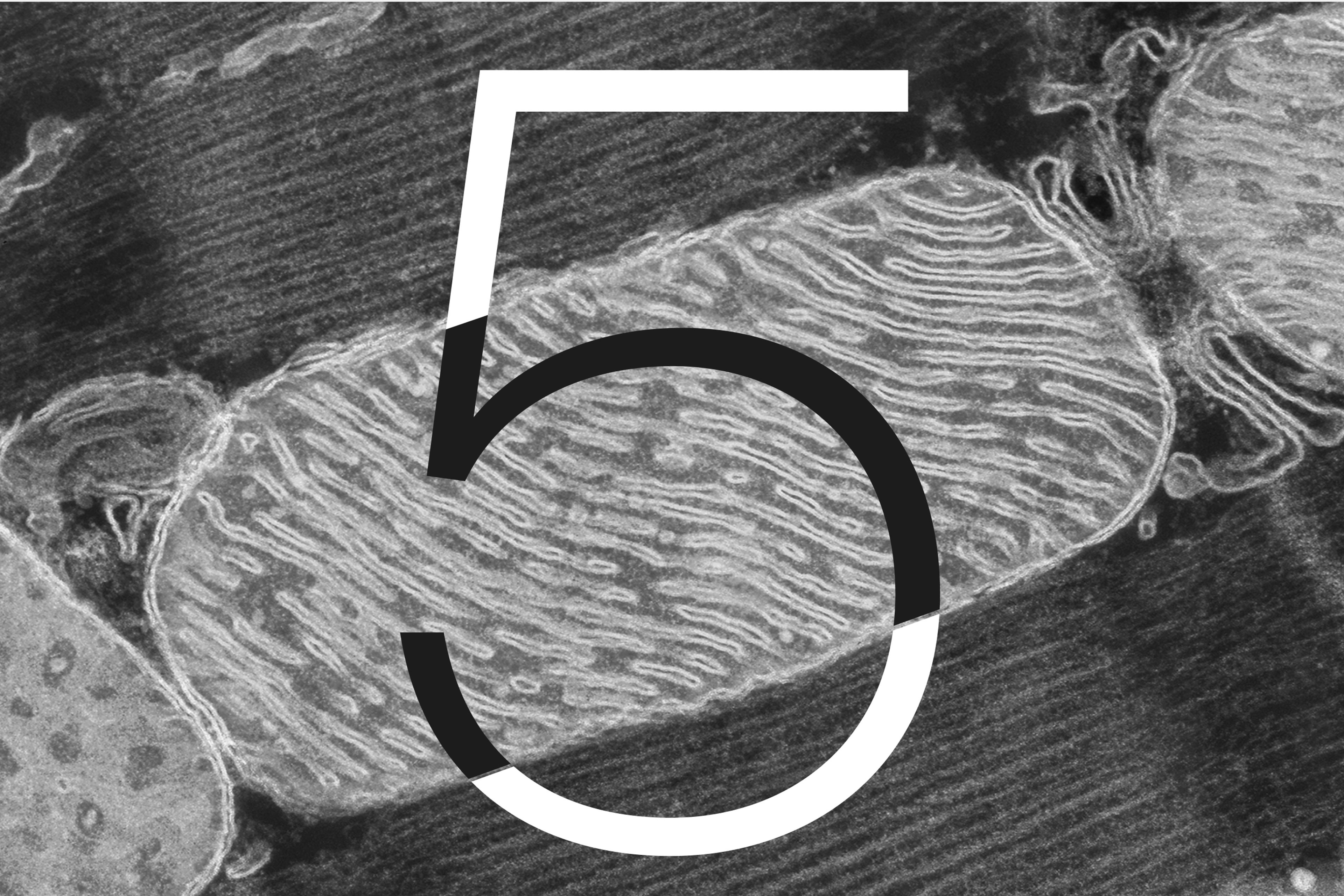What is oxidative stress?
Understanding the impact of oxidative stress on health, disease, and aging and exploring effective mitigation strategies for enhanced well-being.
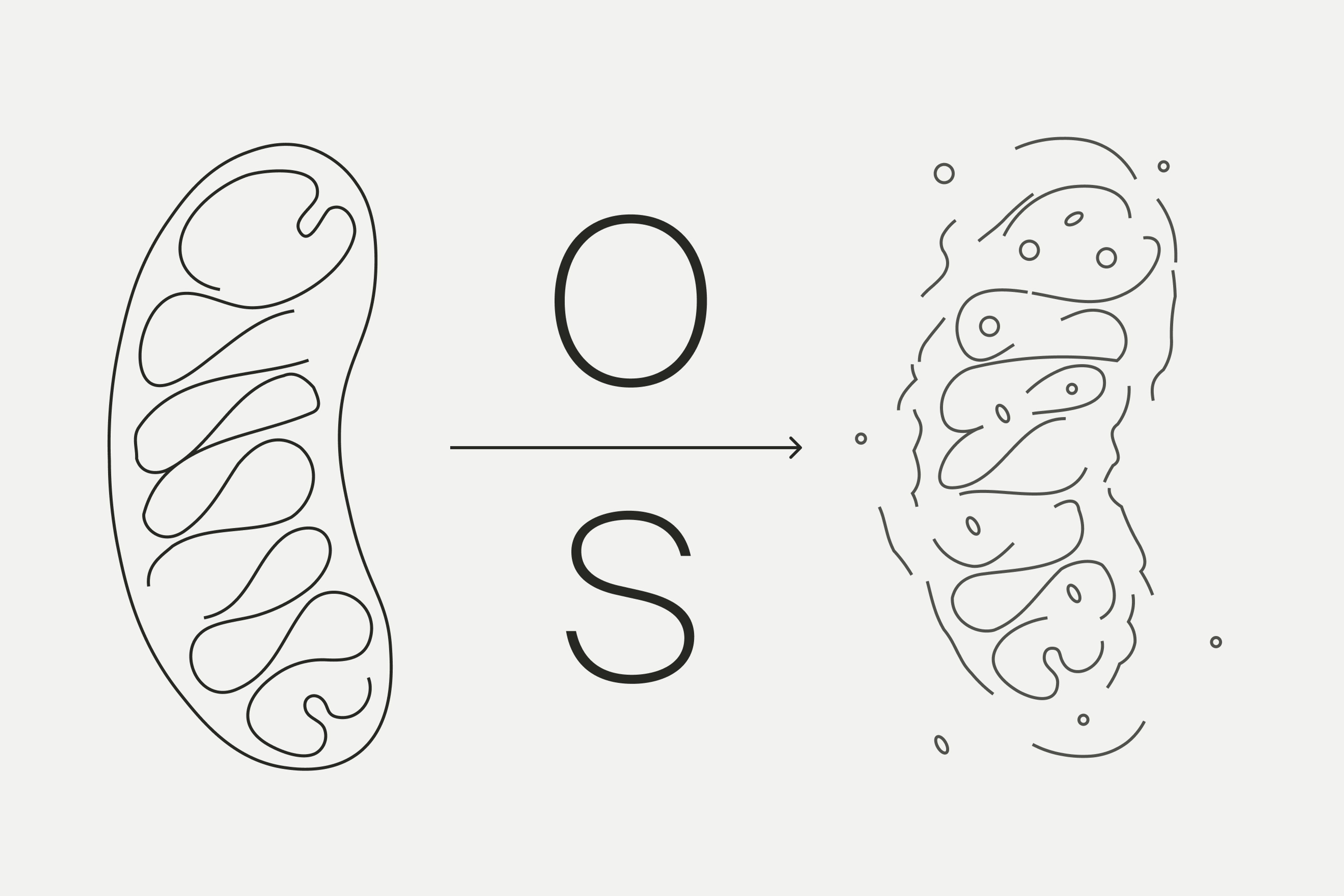
What to know
Oxidative stress occurs when there is an imbalance of compounds called reactive oxygen species, which includes free radicals
Oxidative stress may cause damage to the cells and may contribute to the development of disease
The mitochondria, the “powerhouse” of the cell, are susceptible to oxidative damage
Strategies to reduce oxidative stress and promote mitochondrial health include exercise, calorie restriction, and consuming enough antioxidants
In the world of health and wellness, the term "oxidative stress" frequently emerges as a central antagonist in the narrative of aging and disease. But what does oxidative stress mean? And how does it impact health and longevity?
Join us as we explore this complex process and identify possible steps we can take to reduce it for improved health.
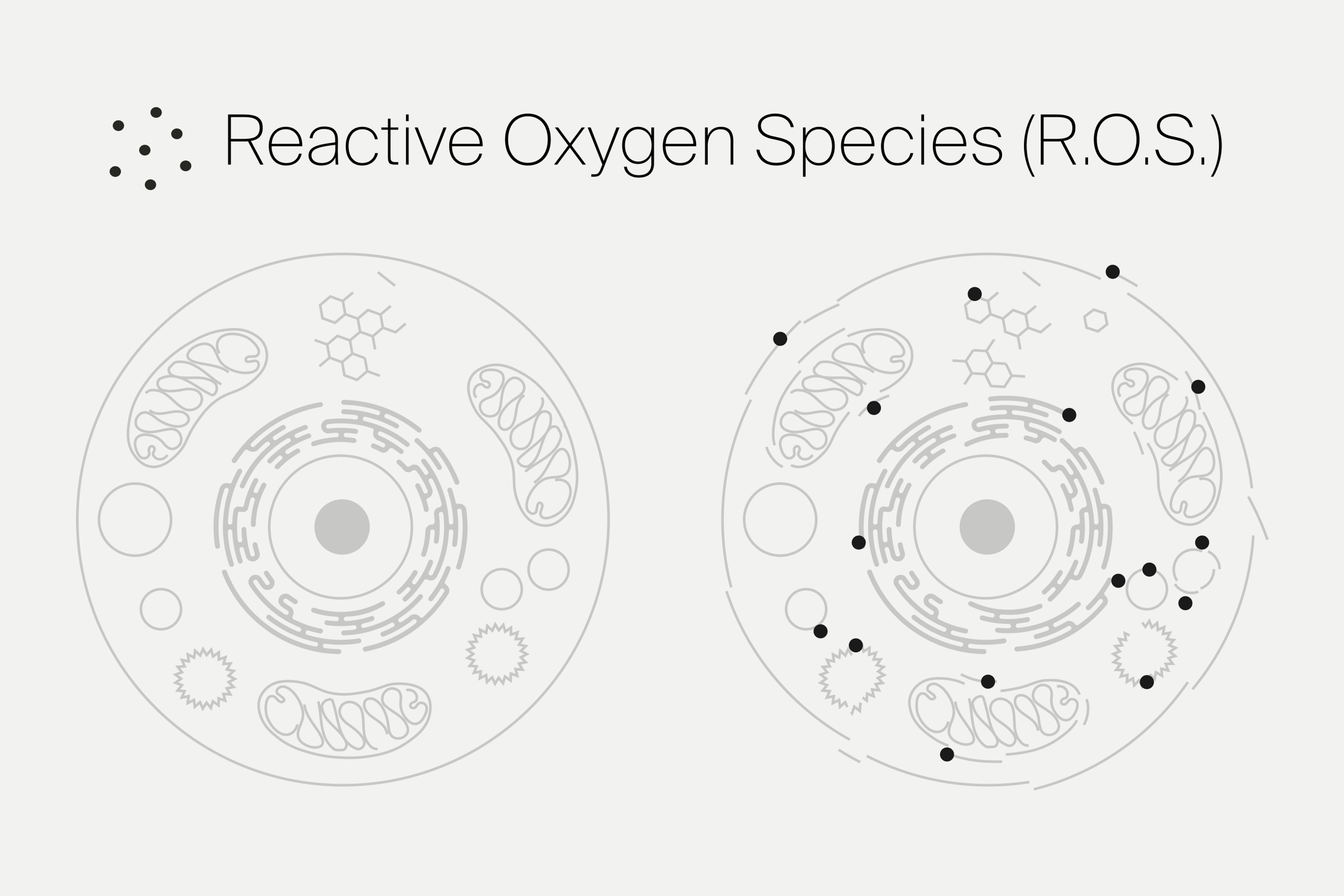
What is oxidative stress?
Oxidative stress occurs when there is an imbalance and buildup of compounds called reactive oxygen species (ROS) inside the body. ROS, which includes compounds called “free radicals,” are produced in the body naturally, as well as through lifestyle factors such as exposure to UV radiation, long-term stress, intense exercise, and a poor diet, among other factors. OS may cause damage to the cells and may contribute to the development of disease.[1]
How does oxidative stress affect our bodies?
Oxidative stress can lead to an imbalance in the body, potentially causing damage to various organs and systems:
- Brain: The buildup of ROS may lead to changes in the neurons, and neurotoxicity, which can impact the brain and lead to problems with cognitive function.[2]
- Skeletal muscles and metabolic health: Skeletal muscle function is impacted by oxidative stress, which may be linked to exercise intolerance and insulin resistance, impacting overall metabolic health.[3]
- Skin: ROS generated naturally in the body as well as through exposure to UV radiation play a role in aging skin and wrinkle development.[4]
- Heart and cardiovascular system: Oxidative stress plays a significant role in the development of heart failure and other forms of cardiovascular diseases.[5]
- Liver and kidneys: ROS buildup can damage these organs and promote inflammation. which may negatively impact health.[6]
Excessive production of ROS is also associated with obesity and related health problems. Many issues contribute to oxidative stress during obesity, such as elevated blood sugar, vitamin and mineral deficiencies, chronic inflammation, and even impaired mitochondrial function, all leading to a buildup of ROS.[7]
ROS at the cellular level
Oxidative stress has the potential to wreak havoc at the cellular level, causing damage to the DNA itself. Damage can extend to the mitochondria. These tiny organelles are considered the “powerhouse” of the cell and are responsible for generating energy for the body. Interestingly, the mitochondria are the biggest source of free radicals in the body as they are created during energy metabolism. Damage to these critical cellular components can contribute to issues in vital organs, including the heart, eyes, muscles, and more, underscoring the far-reaching implications of oxidative stress on overall health.[8]
How to reduce oxidative stress
Given the issues associated with oxidative stress, it is useful to consider whether it can be reversed. While no OS “treatment” strategy can completely eliminate it, some actions may help to reduce it.

Exercise
Exercise is one potential strategy that may be used to reduce oxidative stress. While exercise does increase oxidative stress in the short term, it triggers adaptations that increase the body's antioxidant defenses. Regular exercise may enhance the antioxidant response in the body, promote a decrease in oxidative stress and inflammation, and promote the production of new mitochondria in the muscle.[10] The decrease in OS may also have positive effects on organs such as the heart.[9]
Diet
Some research has shown that caloric restriction and intermittent fasting, with adequate nutrition, are other behaviors that may reduce OS. For example, in a 2-year study of healthy men and women who consumed 25% fewer calories were found to [11]have less OS at the end of the trial.[12]
Particular components of the diet and dietary patterns may also help to reduce OS. Eating foods high in antioxidants, such as those found in a variety of plant-based foods, has been shown to decrease OS in people with chronic conditions. Other changes, such as substituting animal for plant-based protein or adding fiber, may also play a role.[13]
Final Words
Oxidative stress occurs as part of the body’s natural processes, as well as in response to a number of lifestyle factors. Reduction of OS is an important consideration when it comes to maintaining health with age. There are numerous approaches that can be used to reduce OS, and diet and exercise are central to these strategies.
Authors

Written by
Professor of Nutrition & Scientific Writer

Reviewed by
Lead Regulatory Affairs & Scientific Manager Alliances at Timeline
References
- ↑
Jakubczyk K, Dec K, Kałduńska J, Kawczuga D, Kochman J, Janda K. Reactive oxygen species - sources, functions, oxidative damage. Pol Merkur Lekarski. 2020 Apr 22;48(284):124-127. PMID: 32352946.
- ↑
Hajam YA, Rani R, Ganie SY, Sheikh TA, Javaid D, Qadri SS, Pramodh S, Alsulimani A, Alkhanani MF, Harakeh S, Hussain A, Haque S, Reshi MS. Oxidative Stress in Human Pathology and Aging: Molecular Mechanisms and Perspectives. Cells. 2022 Feb 5;11(3):552. doi: 10.3390/cells11030552. PMID: 35159361; PMCID: PMC8833991.
- ↑
Lian, Di et al. “The Role of Oxidative Stress in Skeletal Muscle Myogenesis and Muscle Disease.” Antioxidants (Basel, Switzerland) vol. 11,4 755. 11 Apr. 2022, doi:10.3390/antiox11040755
- ↑
Rinnerthaler M., Bischof J., Streubel M.K., Trost A., Richter K.: Oxidative stress in aging human skin. Biomolecules 2015; 5: pp. 545-589.
- ↑
Tsutsui H, Kinugawa S, Matsushima S. Oxidative stress and heart failure. Am J Physiol Heart Circ Physiol. 2011;301(6):H2181-H2190. doi:10.1152/ajpheart.00554.2011
- ↑
Hajam YA, Rani R, Ganie SY, Sheikh TA, Javaid D, Qadri SS, Pramodh S, Alsulimani A, Alkhanani MF, Harakeh S, Hussain A, Haque S, Reshi MS. Oxidative Stress in Human Pathology and Aging: Molecular Mechanisms and Perspectives. Cells. 2022 Feb 5;11(3):552. doi: 10.3390/cells11030552. PMID: 35159361; PMCID: PMC8833991.
- ↑
Hajam YA, Rani R, Ganie SY, Sheikh TA, Javaid D, Qadri SS, Pramodh S, Alsulimani A, Alkhanani MF, Harakeh S, Hussain A, Haque S, Reshi MS. Oxidative Stress in Human Pathology and Aging: Molecular Mechanisms and Perspectives. Cells. 2022 Feb 5;11(3):552. doi: 10.3390/cells11030552. PMID: 35159361; PMCID: PMC8833991.
- ↑
Kowalczyk, Paweł et al. “Mitochondrial Oxidative Stress-A Causative Factor and Therapeutic Target in Many Diseases.” International journal of molecular sciences vol. 22,24 13384. 13 Dec. 2021, doi:10.3390/ijms222413384
- ↑
El Assar M, Álvarez-Bustos A, Sosa P, Angulo J, Rodríguez-Mañas L. Effect of Physical Activity/Exercise on Oxidative Stress and Inflammation in Muscle and Vascular Aging. Int J Mol Sci. 2022 Aug 5;23(15):8713. doi: 10.3390/ijms23158713. PMID: 35955849; PMCID: PMC9369066.
- ↑
Kawamura, T., & Muraoka, I. (2018). Exercise-Induced Oxidative Stress and the Effects of Antioxidant Intake from a Physiological Viewpoint. Antioxidants, 7. https://doi.org/10.3390/antiox7090119.
- ↑
Il'yasova D, Fontana L, Bhapkar M, Pieper CF, Spasojevic I, Redman LM, Das SK, Huffman KM, Kraus WE; CALERIE Study Investigators. Effects of 2 years of caloric restriction on oxidative status assessed by urinary F2-isoprostanes: The CALERIE 2 randomized clinical trial. Aging Cell. 2018 Apr;17(2):e12719. doi: 10.1111/acel.12719. Epub 2018 Feb 9. PMID: 29424490; PMCID: PMC5847862.
- ↑
Wegman MP, Guo MH, Bennion DM, et al. Practicality of intermittent fasting in humans and its effect on oxidative stress and genes related to aging and metabolism. Rejuvenation Res. 2015;18(2):162-172. doi:10.1089/rej.2014.1624
- ↑
Ávila-Escalante ML, Coop-Gamas F, Cervantes-Rodríguez M, Méndez-Iturbide D, Aranda-González II. The effect of diet on oxidative stress and metabolic diseases-Clinically controlled trials. J Food Biochem. 2020 May;44(5):e13191. doi: 10.1111/jfbc.13191. Epub 2020 Mar 11. PMID: 32160647.






